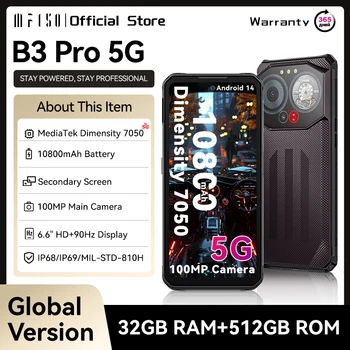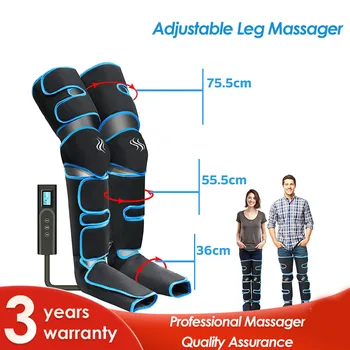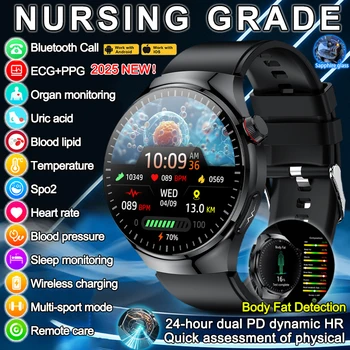Shop this story
A Guide to Obtaining U.S. Visa for Nigerians

A Comprehensive Guide to Obtaining a U.S. Visa for Nigerian
Navigating the U.S. visa application process can be both challenging and daunting, particularly for Nigerian citizens. However, understanding the steps involved, common barriers, and potential solutions can significantly ease the journey.
This guide will comprehensively explore the various types of U.S. visas available, the challenges faced by Nigerians seeking these visas, and practical solutions for obtaining them independently.
Types of U.S. Visas
Before diving into the application process, it is essential to understand the types of U.S. visas available. Visas generally fall into two categories: non-immigrant visas and immigrant visas.
Non-Immigrant Visas
1 . Tourist Visa (B-2): For individuals traveling for leisure, tourism, or medical treatment.
2. Business Visa (B-1): For short-term business activities, such as attending meetings or conferences.
3. Student Visa (F-1): For those looking to study in the U.S. at an accredited institution.
4. Work Visas (H-1B, L-1, etc.): For individuals seeking temporary or permanent employment in the U.S.
5. Exchange Visitor Visa (J-1): For those participating in exchange programs, including internships and cultural exchanges.
Immigrant Visas
1. Family-sponsored Visa: For individuals who have relatives who are U.S. citizens or lawful permanent residents.
2. Employment-based Visa: For individuals offered permanent employment by a U.S. employer.
3. Diversity Visa Lottery: A program that allows applicants from countries with low immigration rates to apply for a visa to the U.S.
Challenges Faced by Nigerians in Obtaining a U.S. Visa
While thousands of Nigerians apply for U.S. visas each year, the process contains several challenges. Here are some common barriers:
1. Visa Denial Rates
Nigeria has one of the highest visa denial rates in the world, particularly for non-immigrant visas. The U.S. government often scrutinizes applications from applicants of countries with high rates of overstaying visas.
2. Document Requirements
The U.S. visa application process requires extensive documentation, including proof of ties to Nigeria, financial stability, and the purpose of travel. Many applicants struggle to gather the necessary paperwork or misunderstand the requirements.
3. Financial Constraints
The U.S. visa process can be expensive. Visa fees, travel costs, and potential legal fees can be prohibitive, especially for lower-income applicants.
4. Misleading Information
Potential visa applicants often encounter misinformation from middlemen and unofficial sources, leading to confusion and mistakes in their applications.
5. Limited Appointment Slots
Due to high demand and limited resources, securing an appointment for a visa interview can be difficult. This often leads to long waits and frustration.
Solutions to Overcome Barriers
While these challenges may seem overwhelming, here are some actionable steps Nigerians can take to improve their chances of obtaining a U.S. visa without relying on middlemen.
1. Thorough Preparation and Research
– Understand Visa Types: Research the different visa options and select the one that fits your purpose of travel.
– Review Official Sources: The U.S. Department of State’s website provides up-to-date information on visa requirements, fees, and application procedures. Accessing this information ensures that you have accurate and reliable data.
2. Document Checklist
– Gather Required Documents: Create a checklist of required documentation, including application forms, financial statements, and proof of ties to Nigeria (like family, property, or employment). This preparation can help you avoid last-minute issues.
– Property and Employment Verification: Collect documents that prove your ties to Nigeria, such as employment letters, property deeds, or family certificates, to demonstrate your intention to return.
3. Financial Planning
– Budgeting: Make a detailed budget that includes all costs associated with the visa application process. This can help you understand the total financial requirements and avoid surprises.
– Obtain Bank Statements: Prepare several months’ worth of bank statements to prove your financial stability and ability to fund your trip.
4. Use of Online Resources
– Online Applications: Use the Consular Electronic Application Center (CEAC) to fill out and submit your Form DS-160 online. This streamlines the application process and reduces paperwork.
– Forums and Support Groups: Engage in online communities or forums where previous applicants share their experiences and tips. This can provide valuable insights into the application process.
5. Consistent Follow-Ups
– Check Appointment Availability Regularly: Keep checking the U.S. embassy’s visa appointment availability page to secure an interview slot as soon as it opens.
– Stay Updated: Visa policies and requirements can change frequently. Maintain awareness of any updates by following the U.S. Embassy in Nigeria on social media or their official website.
6. Preparing for the Interview
– Mock Interviews: Conduct mock interviews with friends or family to prepare for common questions. This will help you articulate your reasons for travel and demonstrate your ties to Nigeria confidently.
– Dress Professionally: First impressions matter. Dressing appropriately for the interview can positively influence the consular officer’s perception.
Conclusion
While the journey to obtaining a U.S. visa from Nigeria can be fraught with challenges, understanding the requirements, preparing thoroughly, and staying informed can significantly improve your chances of success.
By taking control of your visa application process and avoiding middlemen, you can navigate this journey more efficiently and effectively.
Remember, persistence and preparation are key; each step you take can bring you closer to your dream of visiting the United States. Safe travels and good luck with your application!
American Educational NGOs Supporting Africa
Evolution of Educational Philanthropists
Scholarship Applications in America
Exploring Cognitive Recovery and Learning
Brain’s Language Processing through Reading
Exploring Scholarship in Sweden
Educational Scholarship Trends in Ireland
Neurodiversity in the Workplace: Fostering Inclusivity and Accommodations for Diverse Brains
Parenting the Developing Brain: Nurturing Cognitive Growth in Early Childhood
Workable Hacks to Money Saving for College Students
Further reading
Conquer the IELTS on Your First Try
- Afghan afghani (؋)
- Albanian lek (L)
- Algerian dinar (د.ج)
- Angolan kwanza (Kz)
- Argentine peso (ARS $)
- Armenian dram (AMD)
- Aruban florin (Afl.)
- Australian dollar ($)
- Azerbaijani manat (AZN)
- Bahamian dollar ($)
- Bahraini dinar (.د.ب)
- Bangladeshi taka (৳ )
- Barbadian dollar ($)
- Belarusian ruble (Br)
- Belize dollar ($)
- Bermudian dollar ($)
- Bhutanese ngultrum (Nu.)
- Bolivian boliviano (Bs.)
- Botswana pula (P)
- Brazilian real (R$)
- Brunei dollar ($)
- Bulgarian lev (лв.)
- Burmese kyat (Ks)
- Burundian franc (Fr)
- CFP franc (Fr)
- Cambodian riel (៛)
- Canadian dollar ($)
- Cape Verdean escudo ($)
- Cayman Islands dollar ($)
- Central African CFA franc (CFA)
- Chilean peso (CLP $)
- Chinese yuan (¥)
- Colombian peso (COP $)
- Comorian franc (Fr)
- Congolese franc (Fr)
- Costa Rican colón (₡)
- Croatian kuna (Kn)
- Cuban convertible peso (CUC$)
- Cuban peso (CUP ₱)
- Czech koruna (Kč)
- Danish krone (DKK)
- Djiboutian franc (Fr)
- Dominican peso (RD$)
- East Caribbean dollar ($)
- Egyptian pound (EGP)
- Eritrean nakfa (Nfk)
- Ethiopian birr (Br)
- Euro (€)
- Falkland Islands pound (£)
- Fijian dollar ($)
- Gambian dalasi (D)
- Georgian lari (ლ)
- Ghana cedi (₵)
- Gibraltar pound (£)
- Guatemalan quetzal (Q)
- Guernsey pound (£)
- Guinean franc (Fr)
- Guyanese dollar ($)
- Haitian gourde (G)
- Honduran lempira (L)
- Hong Kong dollar ($)
- Hungarian forint (Ft)
- Icelandic króna (kr.)
- Indian rupee (₹)
- Indonesian rupiah (Rp)
- Iranian rial (﷼)
- Iraqi dinar (ع.د)
- Israeli new shekel (₪)
- Jamaican dollar ($)
- Japanese yen (¥)
- Jersey pound (£)
- Jordanian dinar (د.ا)
- Kazakhstani tenge (KZT)
- Kenyan shilling (KSh)
- Kuwaiti dinar (د.ك)
- Kyrgyzstani som (сом)
- Lao kip (₭)
- Lebanese pound (ل.ل)
- Lesotho loti (L)
- Liberian dollar ($)
- Libyan dinar (ل.د)
- Macanese pataca (P)
- Macedonian denar (ден)
- Malagasy ariary (Ar)
- Malawian kwacha (MK)
- Malaysian ringgit (RM)
- Maldivian rufiyaa (.ރ)
- Manx pound (£)
- Mauritian rupee (₨)
- Mexican peso (MXN $)
- Moldovan leu (MDL)
- Mongolian tögrög (₮)
- Moroccan dirham (د.م.)
- Mozambican metical (MT)
- Namibian dollar ($)
- Nepalese rupee (₨)
- Netherlands Antillean guilder (ƒ)
- New Taiwan dollar (NT$)
- New Zealand dollar ($)
- Nicaraguan córdoba (C$)
- Nigerian naira (₦)
- North Korean won (₩)
- Norwegian krone (kr)
- Omani rial (ر.ع.)
- Pakistani rupee (₨)
- Panamanian balboa (B/.)
- Papua New Guinean kina (K)
- Paraguayan guaraní (₲)
- Philippine peso (PHP ₱)
- Polish złoty (zł)
- Pound sterling (£)
- Qatari riyal (ر.ق)
- Romanian leu (lei)
- Russian ruble (₽)
- Rwandan franc (Fr)
- Saint Helena pound (£)
- Samoan tālā (T)
- Saudi riyal (ر.س)
- Serbian dinar (дин.)
- Seychellois rupee (₨)
- Sierra Leonean leone (Le)
- Singapore dollar ($)
- Peruvian nuevo sol (S/.)
- Solomon Islands dollar ($)
- Somali shilling (Sh)
- South African rand (R)
- South Korean won (₩)
- South Sudanese pound (£)
- Sri Lankan rupee (රු)
- Sudanese pound (ج.س.)
- Surinamese dollar ($)
- Swazi lilangeni (L)
- Swedish krona (kr)
- Swiss franc (CHF)
- Syrian pound (ل.س)
- Tajikistani somoni (ЅМ)
- Tanzanian shilling (Sh)
- Thai baht (฿)
- Tongan paʻanga (T$)
- Trinidad and Tobago dollar ($)
- Tunisian dinar (د.ت)
- Turkish lira (₺)
- Turkmenistan manat (m)
- Ugandan shilling (UGX)
- Ukrainian hryvnia (₴)
- United Arab Emirates dirham (AED)
- United States dollar ($)
- Uruguayan peso ($U)
- Uzbekistani som (UZS)
- Vanuatu vatu (Vt)
- Vietnamese đồng (₫)
- West African CFA franc (CFA)
- Yemeni rial (﷼)
- Zambian kwacha (ZK)
- Smart Shop (351)
- Smart Health (12)
- Privacy Policy
- HT Mall
- About Us
- Start Here
- HT Blog
- Shop Here (351)
- Human Hair (20)
- Smart Phones (40)
- Network Devices (17)
- Smart Watches (15)
- Smart Games (5)
- Smart Nail Care (7)
- Kitchenware (11)
- Phone Accessories (13)
- Smart Razors (2)
- Car Accessories (9)
- Smart Kid (9)
- Smart Devices (44)
- Smart Phones (40)
- Smart Massagers (25)
- Phone Accessories (13)
- Slim Fit (15)
- Smart Lights (7)
- Anti Aging (5)
- Books (3)
- Smart Hair Care (3)
- Smart Routers (1)
- Smart Security (8)
- Earn with Us
- Wishlist




























Leave a comment